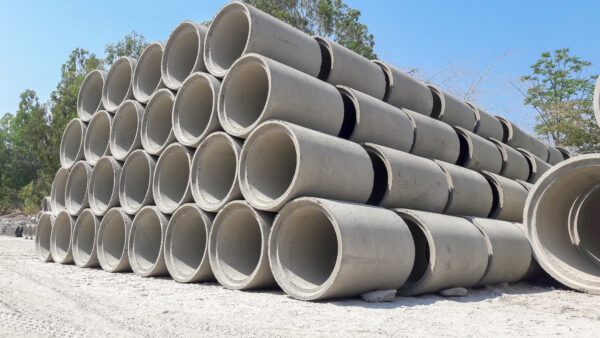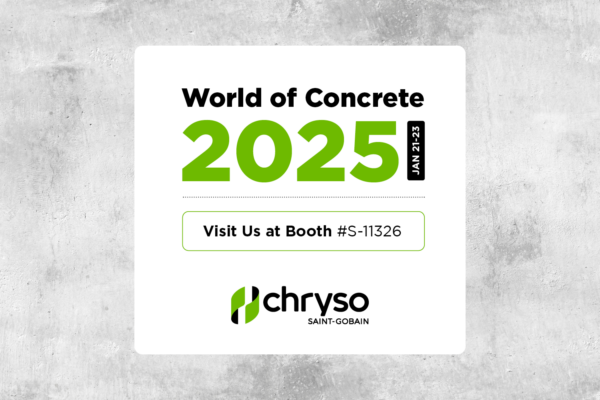Non-Corrosive Properties of POLARSET® Non-Chloride Accelerator – TB-0802

POLARSET® Accelerator is an ASTM C494, Type C, non-chloride, noncorrosive, accelerating admixture for concrete. It was developed as an alternative to calcium chloride based accelerators to promote early set time and strength gain in cold weather. Calcium chloride is recognized as the most efficient and economical concrete accelerator available, but the tendency of chloride ions in concrete to increase corrosion of embedded metals requires that its use be limited when concrete is exposed to moisture and other chlorides, such as those found in deicing salts.
This technical bulletin describes tests performed on concrete containing POLARSET® to determine its effect on corrosion of embedded metals. The test procedures include cyclic polarization and potentiostatic polarization methods using mortar cylinder with embedded steel. Each test was performed with and without admixed chlorides in order to simulate both non-chloride environments and marine and deicing salt environments.
Cyclic Polarization
Cyclic Polarization testing screens the pitting tendency of steel. Table 1 data shows that both reference and POLARSET® admixed solutions did not induce pitting in the absence of chloride. However, column 3 indicates POLARSET® shows a marked improvement in resistance to pitting in the presence of chlorides, when compared to the control. These test results are expected since a major constituent in POLARSET® is calcium nitrite, known as an excellent corrosion inhibitor for protection of embedded rebar in concrete.
Table 1: Cyclic Polarization Test Results
| POLARSET® Dosage Rate, mL/100 kg (oz/100 lbs) | Ep,1 (mV), Saturated Calcium Hydroxide Solution | Ep, (mV), Saturated Calcium Hydroxide Solution, 0.5 M Sodium Chloride2 |
|---|---|---|
| 0 (0) | no pitting | -548 |
| 980 (15) | no pitting | -280 |
| 5220 (80) | no pitting | -105 |
Notes:
1. Ep is protection potential. In general, the more positive Ep is versus a saturated calomel electrode (SCE), the less likely pitting will occur in concrete.
2. A solution dosage rate of 0.5 M sodium chloride is equivalent to 3 kg/m³ (5 lbs/yd³) chloride in concrete.
Potentiostatic Polarization
Constant potential polarizations were carried out in a 0.5 water/cement ratio mortar using an ASTM C150, Type V cement. The test is based upon a method commonly used in Europe to determine the harmlessness of chemical admixtures. It has also been shown that this test method provides information as to whether or not admixtures are beneficial in the presence of chloride by admixing chloride into the mortar. The Potentiostatic Polarization test procedure states that an admixture is generally considered to be harmless if the average current over 24 hours is within a factor of 2 of the control specimen or under 1 μA/cm2.
Referring to Table 2, potentiostatic data depicts both control mortar and mortar admixed with POLARSET® is noncorrosive as expected in the absence of chloride. Column 3 of Table 2 reveals that control mortar is very corrosive in the presence of 3 kg/m3 (5 lbs/yd3) sodium chloride, with average current densities of 264 μA/cm2. The inclusion of POLARSET® significantly lowered current values, nearly to levels equivalent to those without chloride (down to 2.0 and 3.0 μA/cm2, nearly two magnitudes lower than the control).
Table 2: Potentiostatic Polarization Test Results
| POLARSET® Dosage Rate, mL/100 kg (oz/100 lbs) | Current Density, μA/cm2 No Sodium Chloride | Current Density, μA/cm2 3 kg/m3 (5 lbs/yd3) Sodium Chloride |
|---|---|---|
| 0 (0) | 0.54 | 264 |
| 980 (15) | 0.56 | 2.0 |
| 5220 (80) | 0.36 | 3.0 |





